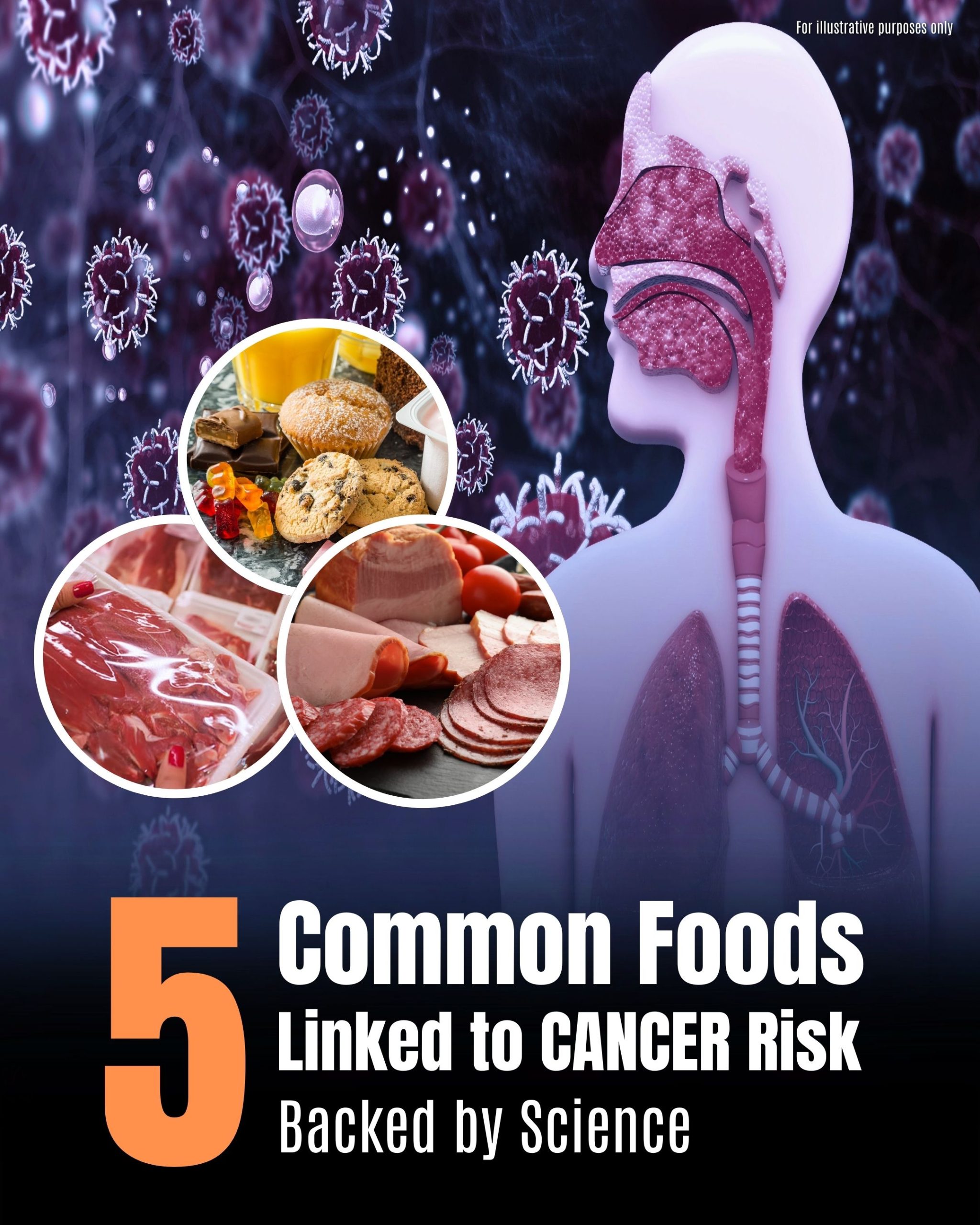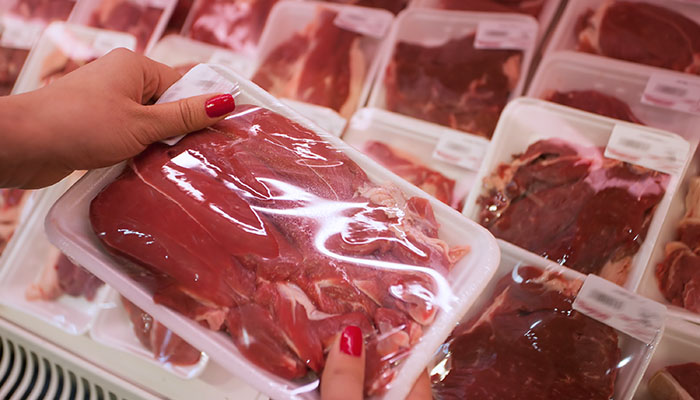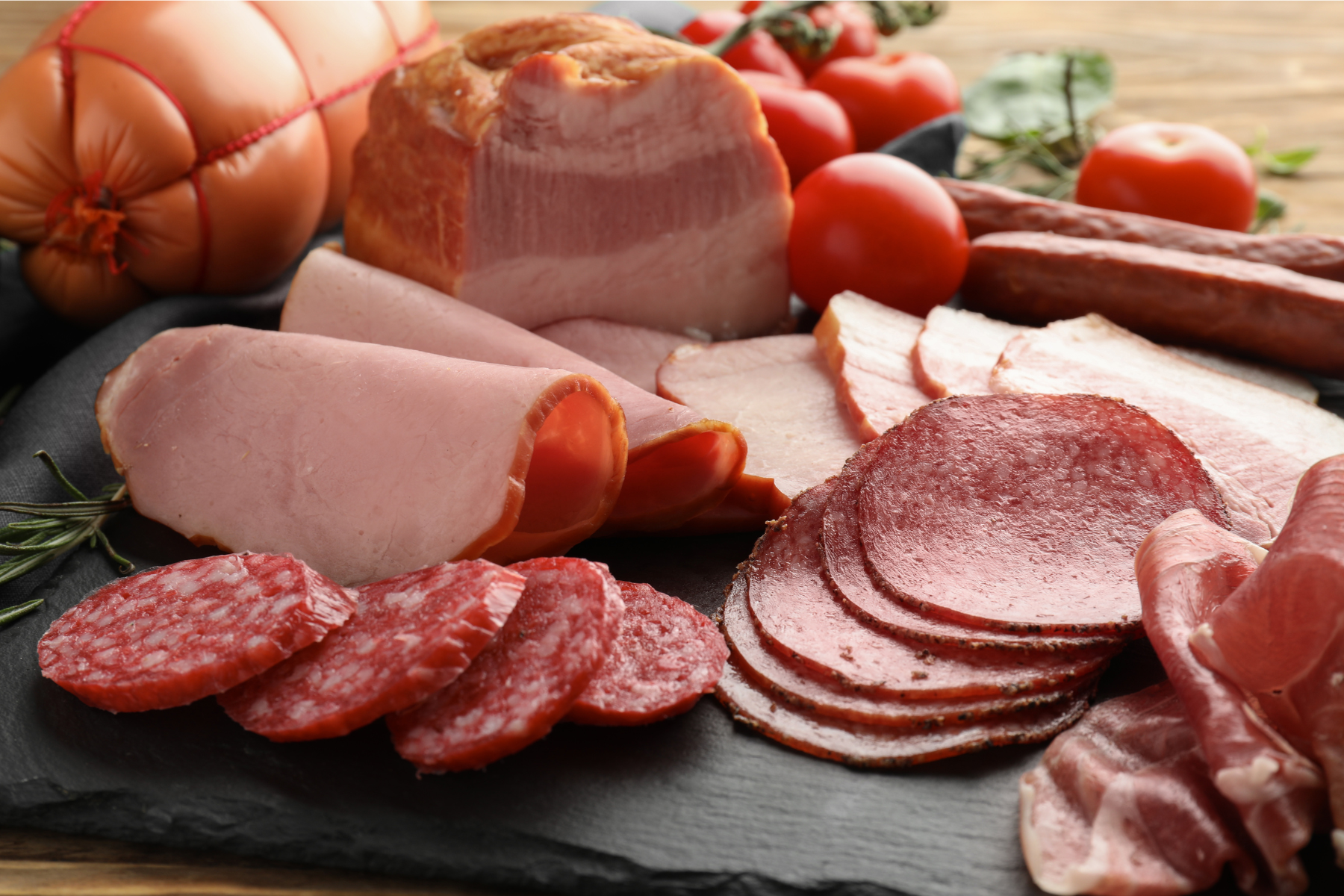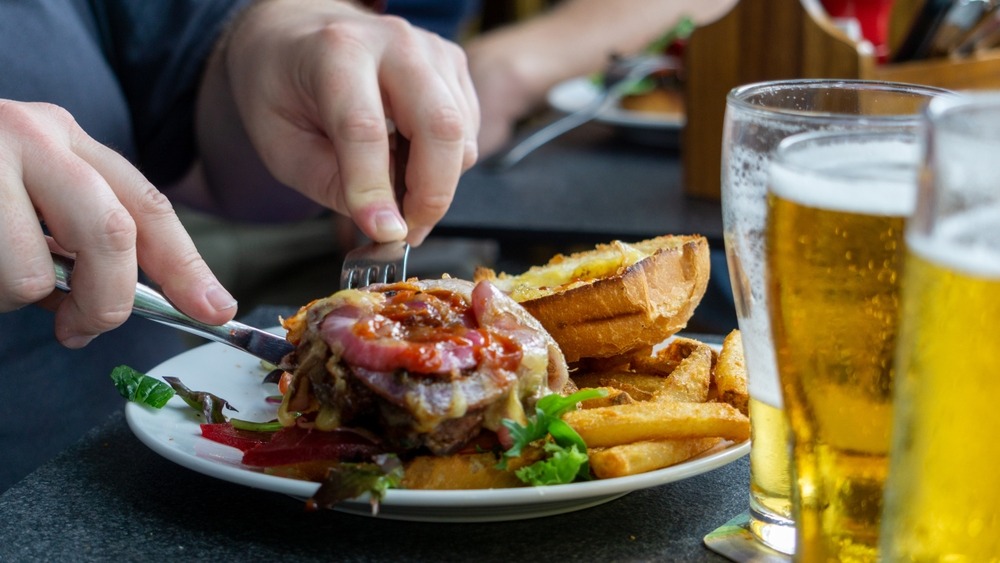Learning about cancer risk factors can be concerning, especially when these risks come from something as common as food.
This knowledge often raises many questions: Why do certain foods increase cancer risk? Should these foods be completely avoided? What are healthier alternatives?

Clinical dietitian Alyssa Tatum shares five food groups linked to cancer and provides tips on how to manage your relationship with these foods moving forward.

Red Meats
Red meats such as beef, pork, venison, and lamb have been linked to colorectal cancer, according to Tatum.
The World Health Organization (WHO) classifies red meat as Group 2A, meaning it is “probably carcinogenic to humans.” Meanwhile, processed meats are classified as Group 1, indicating that there is sufficient evidence to conclude they cause cancer, particularly colorectal cancer.

However, this does not mean you must completely give up favorites like hamburgers. Instead, Tatum advises consuming red meat less frequently and in smaller portions.
“We’re not saying, ‘Don’t eat it at all,’ but rather, ‘Try to reduce the frequency of red meat intake and choose smaller portions,’” Tatum explains.
Dietitians at MD Anderson recommend a largely plant-based diet. Two-thirds of your diet should consist of vegetables, whole grains, beans, fruits, nuts, and seeds, while the remaining third can include lean animal protein and dairy products.
Experts also recommend limiting red meat intake to less than 18 ounces per week. To visualize this, 18 ounces is approximately six decks of cards or two softballs.
Tatum also highlights that the cooking temperature of red meat can impact cancer risk. For instance, chargrilled meats like burgers and steaks contain more potential carcinogens than those cooked at lower temperatures using methods such as baking or sous vide.
“When cooked at very high temperatures, red meat can produce carcinogens linked to cancer,” Tatum warns.
For a healthier approach, she suggests choosing leaner cuts, trimming excess fat, or marinating meat before cooking. Alternative protein sources include plant-based proteins, poultry, and seafood.
Processed Meats
Another category of meat associated with an increased cancer risk is processed meat.
Processed meat includes any meat that has been preserved or altered in shape and flavor. This category encompasses deli meats, hot dogs, ham, bacon, and sausage.
These meats are often preserved with nitrates and nitrites, which Tatum says can increase the risk of colorectal and stomach cancers.

WHO and cancer research organizations have confirmed a direct link between processed meat consumption and increased cancer risk.
Making dietary changes can feel overwhelming, so Tatum suggests starting small. For example, when purchasing deli meats, look for nitrite- and nitrate-free options or those lower in sodium and fat.
“I recommend checking for healthier alternatives and reading labels to compare products,” she advises.
Alcohol
There are many discussions about the health risks and potential benefits of alcohol consumption. However, cancer experts agree that alcohol increases the risk of several cancers, including stomach, colorectal, esophageal, liver, pancreatic, and breast cancers.
“Alcohol damages tissues over time, which can lead to changes in cell DNA and an increased risk of cancer,” Tatum explains.
WHO has identified alcohol as a Group 1 carcinogen, meaning there is sufficient evidence that it contributes to cancer.
While recent guidelines recommend avoiding alcohol entirely, this may not be feasible for everyone. For those who choose to drink, moderation is key: a maximum of one drink per day for women and two drinks per day for men.
Ultra-Processed Foods and Drinks
Ultra-processed foods and drinks are indirectly linked to cancer due to their high levels of sugar and sodium, which contribute to weight gain and obesity.
“Consuming ultra-processed foods that are high in calories and low in nutritional value can increase cancer risk by leading to weight gain and obesity,” Tatum states.

Recent studies have suggested a link between ultra-processed food consumption and increased risk of multiple cancer types, including breast and colorectal cancer.
She suggests reducing the intake of ultra-processed foods by focusing on moderation and opting for smaller portion sizes.
“It’s unrealistic for some people to completely eliminate ultra-processed foods from their diet. Instead, aim for balance and moderation,” she says.
Foods and Drinks with Added Sugar
Products containing added sugar or artificial sweeteners are also indirectly linked to cancer.
Similar to ultra-processed foods, these sugary products contribute to weight gain and obesity, which increase cancer risk.

Although some studies have explored whether artificial sweeteners directly cause cancer, Tatum notes that findings have been inconclusive. However, WHO has classified aspartame, a commonly used artificial sweetener, as “possibly carcinogenic to humans” based on limited evidence.
She recommends consuming artificial sweeteners the same way as sugar: in moderation.
How Your Diet Impacts Cancer Risk
Because these foods are so common, chances are you have consumed them before. However, Tatum emphasizes that occasional consumption is not the primary concern—habitual consumption is.
“Eating smoked meats at a barbecue last week does not mean you will develop cancer. The concern is repeated exposure over time. The key is to consume these foods in moderation,” she concludes.
By making informed choices and adopting a balanced diet, individuals can reduce their risk of developing cancer while still enjoying a wide variety of foods.
Source: mdanderson.org; WHO







